What should you do if your dog is having an allergic reaction. Flea allergy dermatitis is an allergic reaction to fleabites.
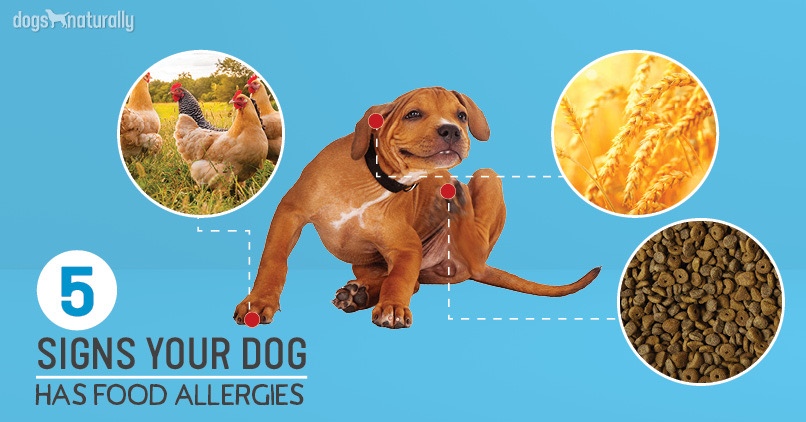
5 Signs Your Dog Has Food Allergies Dogs Naturally
If you notice your dog scratching a lot or see hives or redness on his skin then he may have an allergy.

How do you know if your dog is having allergic reaction. On the surface it could look like your pet is experiencing hyperactivity or may be acting abnormally but there are specific signs to look for to tell if your dog is having a seizure. Mild reactions generally appear as hives or swelling. If the allergy is especially severe a dog can have an extreme anaphylactic reaction and these can be life-threatening.
If you notice your dog scratching a lot or see hives or redness on his skin then he may have an allergy. You may find patches of dry skin that suggest that your beloved dog is suffering an allergic reaction to something they have eaten or otherwise encountered. So whether your furry friend is allergic to skin pollutants or its body cant handle some food.
An allergic reaction is an aberrant response to the vaccination or rather an over-reaction to the vaccine. A change in a pets appearance is more dramatic and noticeable in pets with short hair coats. For example your dog may be continually scratching the base of its tail.
These are often seasonal meaning that the dog itches only at certain times of the year. Another potential symptom is hives or bumps all over the body. Left unchecked it can lead to scabbing hot spots recurring skin infections and more.
Types of Dog Allergies. The most common way to spot your pups allergic reaction is by closely examining the skin as canines have a much higher count of histamine-releasing cells there. Puffiness may be noted especially around the eyes muzzle and ears.
Swelling of the feet face or joints Itchiness is by far the most common way allergies show themselves in your dog. This may indicate oral allergic reaction syndrome a response to pollen not to the food itself. If they are the only symptoms you notice you can wait a day or two before scheduling a vet visit.
Even if your vet finds a reason for your dogs skin problems they may still suspect that an adverse food reaction is at least partially responsible since for example yeast infections can develop as a result of food allergies. Eye and Ear Infections it always pays to keep a close eye on the eyes and ears of your dog. Puffiness can occur on the muzzle ears and around the eyes.
If you find yourself wondering is my dog having an allergic reaction consider how long and how severe her symptoms have been. Signs can be vomiting andor diarrhea within the first few hours after administration of the vaccine. Your doctor can do either a skin test or a blood test that will detect allergen-specific IgE Immunoglobulin E to find out if you have dog allergies.
Symptoms of anaphylaxis include hives a swollen face or muzzle drooling vomiting and diarrhea. Common symptoms of dog seizures include jerking twitching drooling foaming at. Food allergy symptoms can range from skin conditions to stomach upset.
However some reactions can be severe causing life-threatening anaphylaxis. Having a dog with allergy issues can be incredibly frustrating for you and your dog. Probably the most serious allergic reaction a dog can suffer from that causes breathing problems is called Allergic pneumonitis.
The most common area for swelling is the face especially around the eyes and muzzle. And non-stop scratching at his ears paws face and back that drive you crazy. Some dogs are allergic to flea saliva.
Allergic reactions are often secondary to exposure to some type of antigen an allergen. If there is no other apparent cause for your dogs symptoms your veterinarian may begin to suspect that food allergies are behind your dogs itchy skin or ear infections. Here are some of the most common allergic reactions in dogs and what you should do if you notice them.
Since allergies come in many forms your dogs reaction might not be easy to define. Even if youre pretty certain that youre. However if theyre coupled with any other symptoms plan to get to the vet soon.
This makes affected dogs extremely itchy especially at the base of the tail and their skin may. The allergen is damaged by warming the food. In an atopic allergy the dog reacts to airborne allergens such as pollen molds fungus and house dust.
It may progress to difficulty breathing. Signs of food allergies in dogs include. Sometimes they are itchy and begin scratching.
This allergic reaction is caused by an irritant or parasite entering the dogs lungs which then causes an allergic reaction in the dog. Most allergic reactions are relatively mild. Your vet may have prescribed a seasonal dose of Benadryl or Claritin but the itching persists.
These reactions are common in all types of allergies. Unfortunately we often never know the cause for the allergic reaction but it can be due to numerous causes such as the. The body immune system recognizes the pollen and comparable proteins in the food and directs an allergic reaction to it.
Areas that become swollen as a result of an allergic reaction are also often itchy so a pet scratching or rubbing its face will also alert owners of a problem. Allergic reactions are a very common cause for midnight visits to the emergency room for dogs.
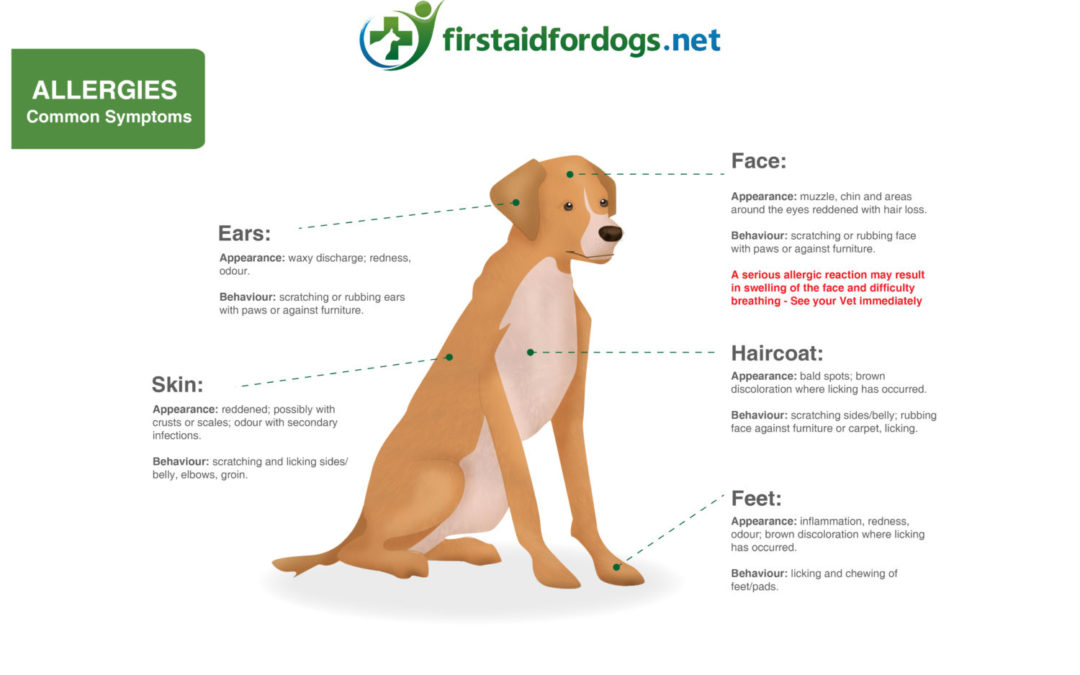
Allergies In Dogs What To Look Out For And How To Help
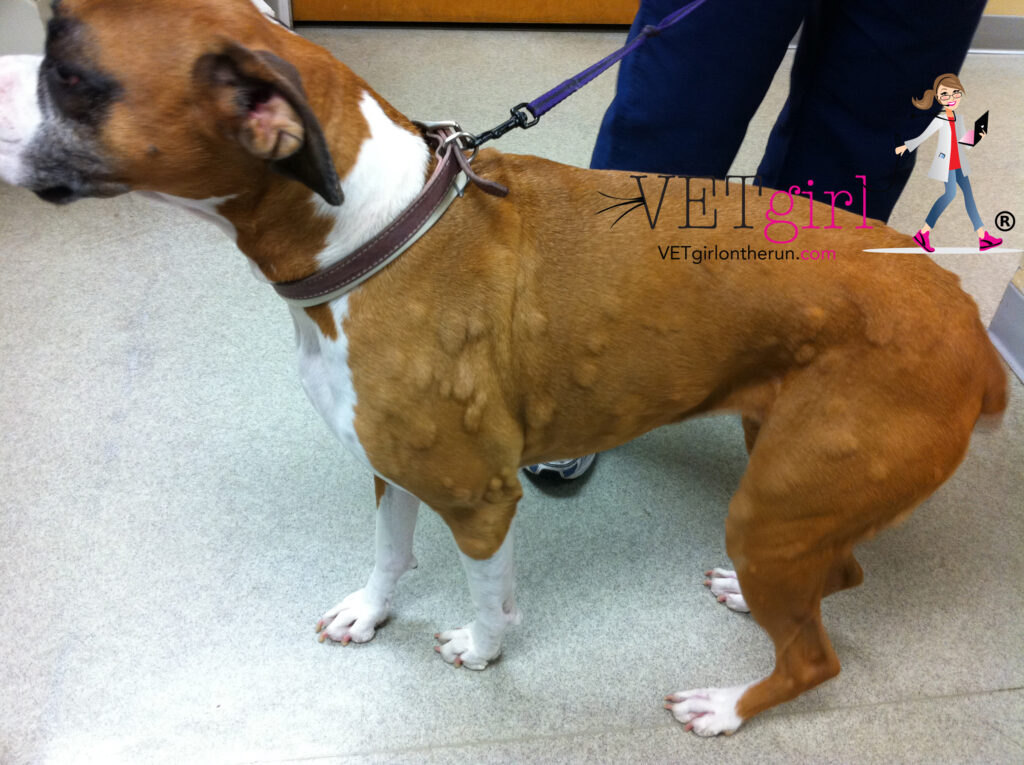
How To Treat The Allergic Reaction In Dogs Vetgirl Veterinary Ce Blog
Allergies Dalton Veterinary Associates
/french-bulldog-dog-with-swollen-face-and-red-puffy-eyes-after-suffering-an-allergic-reaction-1142155126-7ba1543fcd8e45ef833a94b2cfb34cb2.jpg)
What To Do If Your Dog S Face Is Swollen
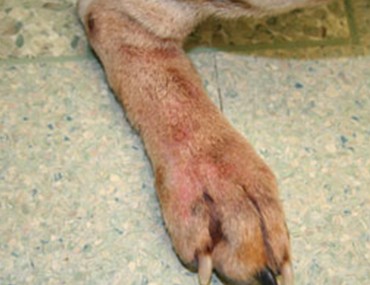
A Quick Guide To Allergic Reactions In Dogs

What To Do If Your Dog Has Hives Fauna Care
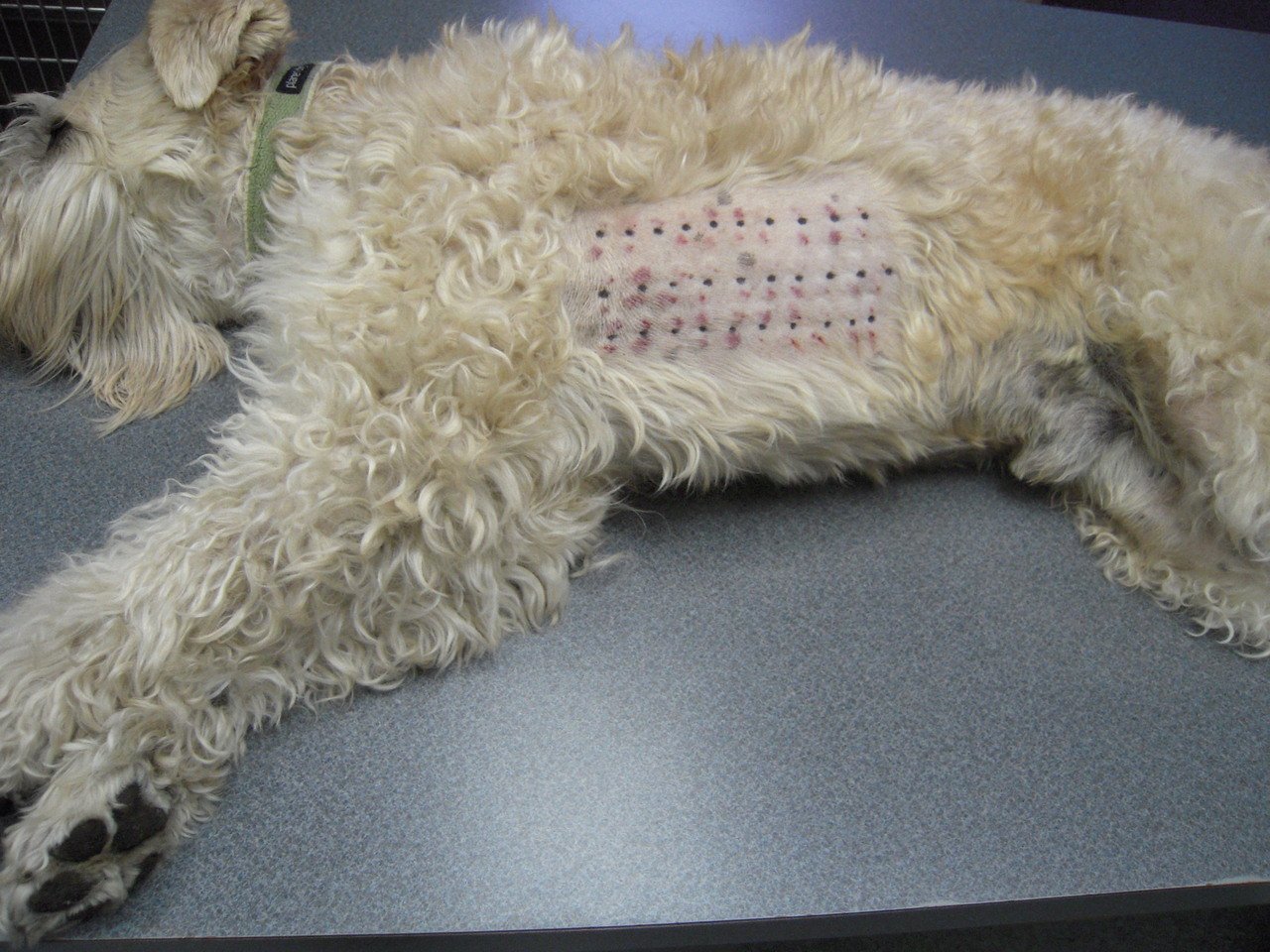
Signs Your Dog Is Having An Allergic Reaction How To Help
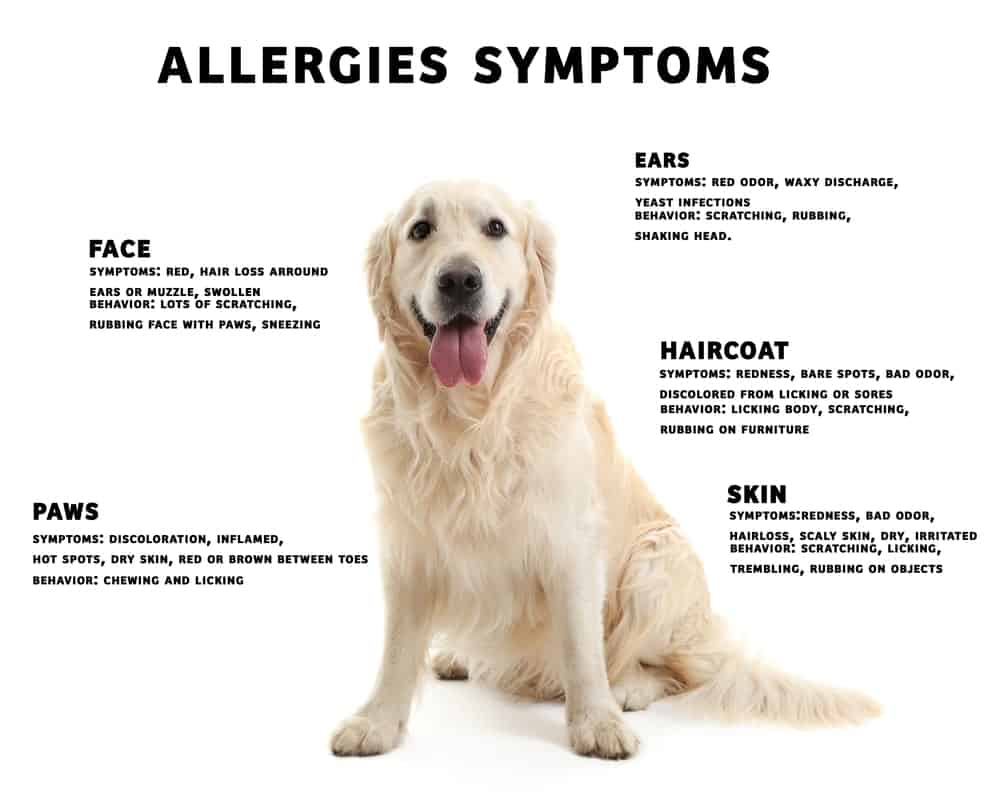
5 Signs Your Dog Is Having An Allergic Reaction The Dogington Post
